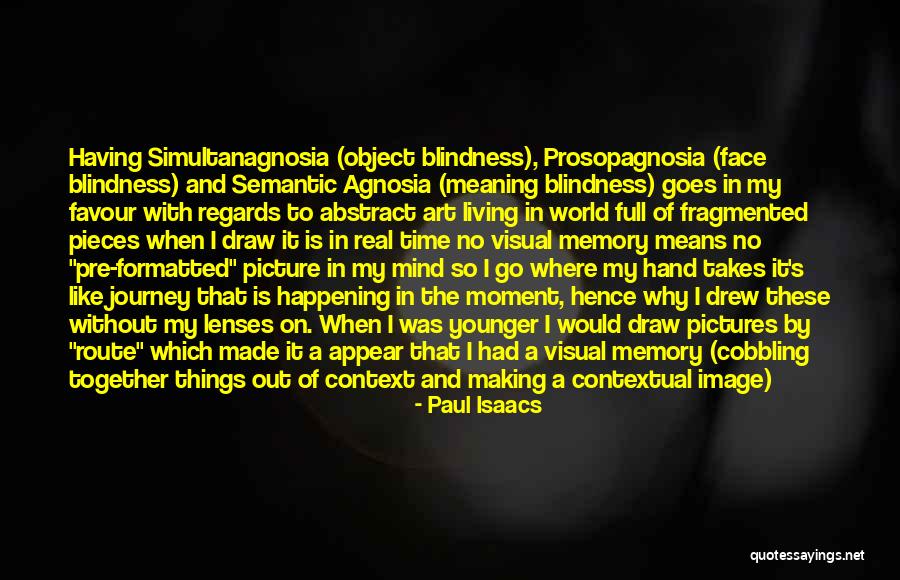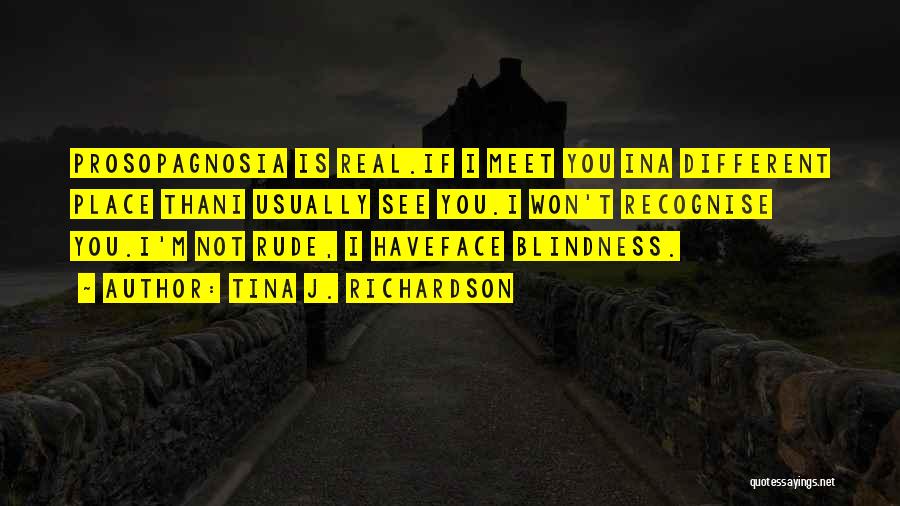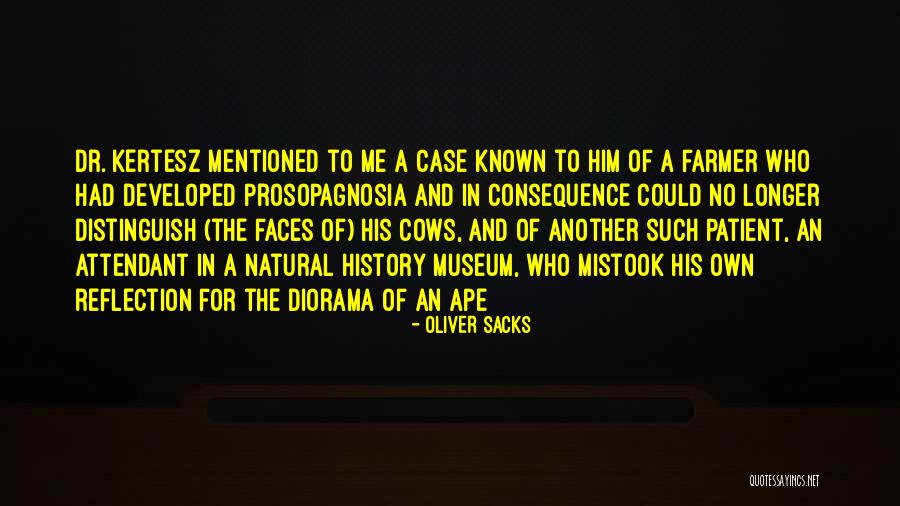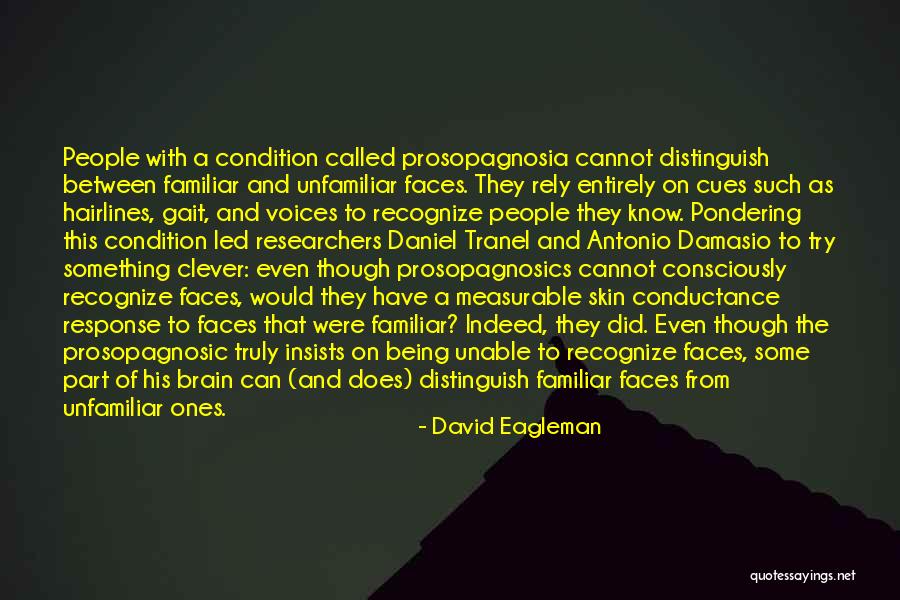Quotes & Sayings About Prosopagnosia
Enjoy reading and share 5 famous quotes about Prosopagnosia with everyone.
Top Prosopagnosia Quotes

Having Simultanagnosia (object blindness), Prosopagnosia (face blindness) and Semantic Agnosia (meaning blindness) goes in my favour with regards to abstract art living in world full of fragmented pieces when I draw it is in real time no visual memory means no "pre-formatted" picture in my mind so I go where my hand takes it's like journey that is happening in the moment, hence why I drew these without my lenses on. When I was younger I would draw pictures by "route" which made it a appear that I had a visual memory (cobbling together things out of context and making a contextual image) — Paul Isaacs

prosopagnosia is real.
If I meet you in
a different place than
I usually see you.
I won't recognise you.
I'm not rude, I have
face blindness. — Tina J. Richardson

Dr. Kertesz mentioned to me a case known to him of a farmer who had developed prosopagnosia and in consequence could no longer distinguish (the faces of) his cows, and of another such patient, an attendant in a Natural History Museum, who mistook his own reflection for the diorama of an ape — Oliver Sacks

Before you say it, Derek's boyfriend doesn't look anything like me. "
"How would you know? — Laura Ruby

People with a condition called prosopagnosia cannot distinguish between familiar and unfamiliar faces. They rely entirely on cues such as hairlines, gait, and voices to recognize people they know. Pondering this condition led researchers Daniel Tranel and Antonio Damasio to try something clever: even though prosopagnosics cannot consciously recognize faces, would they have a measurable skin conductance response to faces that were familiar? Indeed, they did. Even though the prosopagnosic truly insists on being unable to recognize faces, some part of his brain can (and does) distinguish familiar faces from unfamiliar ones. — David Eagleman





